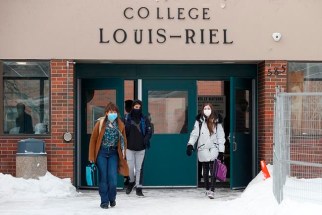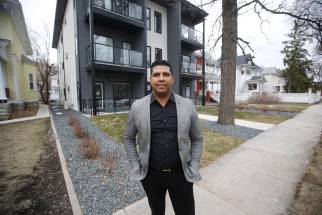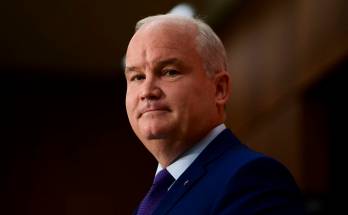School funding increase called skimpy in light of escalating expenses
Read this article for free:
or
Already have an account? Log in here »
To continue reading, please subscribe:
Monthly Digital Subscription
$19 $0 for the first 4 weeks*
- Enjoy unlimited reading on winnipegfreepress.com
- Read the E-Edition, our digital replica newspaper
- Access News Break, our award-winning app
- Play interactive puzzles
*No charge for 4 weeks then billed as $19 every four weeks (new subscribers and qualified returning subscribers only). Cancel anytime.
Read unlimited articles for free today:
or
Already have an account? Log in here »
Hey there, time traveller!
This article was published 03/02/2022 (959 days ago), so information in it may no longer be current.
Annual operational funding for public school divisions that are strapped for cash, owing to expenses related to COVID-19, staff wage settlements, and a surge in the cost of living, will not keep up with inflation in 2022-23 — for another consecutive year.
Kindergarten to Grade 12 schools will receive $120 million in provincial funding next year to undertake regular operations and address new cost pressures, Manitoba Education announced Friday.
That sum includes base funding of $20.2 million for public and independent schools, a one-time $77-million allotment to address current financial strains, and a $23.2-million grant (the equivalent of a two per cent tax hike) to make up for a mandated freeze of education property taxes, as the province works toward phasing out the tax.
Education Minister Wayne Ewasko touted the commitment as one that will both ensure divisions have the resources required so that all students can succeed, no matter where they live in the province, and reduce the tax burden on residents.
“School divisions have told us that COVID-19, inflation and other costs have increased their financial pressures and burdens. This has been taken into consideration for this year’s public school funding announcement,” Ewasko said, during his opening remarks at a virtual news conference on K-12 funding for the upcoming academic year.
Ewasko repeatedly stated that Manitoba spends upwards of $15,400 annually per student, a figure that is second only to New Brunswick when it comes to per-pupil education funding in Canada.
“School divisions have told us that COVID-19, inflation and other costs have increased their financial pressures and burdens. This has been taken into consideration for this year’s public school funding announcement.”
– Education Minister Wayne Ewasko
Education stakeholders say the province’s high child poverty rate, rural busing costs, and the fact that not all jurisdictions file the same school-related expenses under education need to be considered to contextualize that statistic.
The minister indicated that enrolment continues to fluctuate because of COVID-19, with a greater number of homeschoolers in comparison to pre-pandemic years, but officials took that into account when allocating funds.
Base funding for public schools will increase by $18 million, or 1.34 per cent. That sum includes $7 million for operating support and $11 million in capital support — increases of 0.5 per cent and eight per cent, respectively.
The cost of inflation, meantime, hit nearly five per cent last month, a new 30-year high.
Alan Campbell, president of the Manitoba School Boards Association, noted the price of everything from natural gas needed to heat classrooms, to the fuel required to operate school buses, to food expenses for meal programs, has skyrocketed.
“The consumption of natural gas and other heating fuels is also at record highs because our ventilation systems are drawing in much higher levels of fresh air in order to keep air-quality levels as good as they can be under the current circumstances,” Campbell said.
Political opponents and the teachers union were also quick to condemn the province for failing to fund public education at or above the pace of inflation Friday.
“The consumption of natural gas and other heating fuels is also at record highs because our ventilation systems are drawing in much higher levels of fresh air in order to keep air-quality levels as good as they can be under the current circumstances.”
– Alan Campbell, president of the Manitoba School Boards Association
“How are (student outcomes) going to improve? We’re really just treading water,” said James Bedford, president of the Manitoba Teachers’ Society.
The NDP’s education critic, Nello Altomare, criticized the premier for “starving education.”
“Schools are being forced to absorb the costs of Manitoba’s failures on poverty, hunger, mental health and justice. Instead of addressing those issues, the PCs are padding their budget by claiming school construction as an education expense, when it is infrastructure,” said Dougald Lamont, leader of the Manitoba Liberals, in a release.
In an afternoon interview, Ewasko said it cannot be ignored that the operational budget is a fraction of the $120-million announcement. He said new funding for 2022-23 — a one-time sum to address teacher wage settlements included — is the equivalent of a 2.9 per cent hike.
The minister noted the province’s 2021 budget promise to spend an additional $1.6-billion on education, just over half of which is for capital projects, over four years.
Given the latest $77-million announcement, the province has earmarked around $150 million for teacher salary settlements and other cost pressures, on top of annual funding commitments.
“Schools are being forced to absorb the costs of Manitoba’s failures on poverty, hunger, mental health and justice. Instead of addressing those issues, the PCs are padding their budget by claiming school construction as an education expense, when it is infrastructure.”
– Dougald Lamont, leader of the Manitoba Liberals
The school boards association has estimated the expense of necessary back-pay and cost of living adjustments related to recent teacher salary settlements across the province is at least $120 million.
However, Campbell said divisions also have to pay millions of dollars in settlement costs to support staff, given their latest collective agreements were also affected by rulings that overturned the province’s controversial wage freeze legislation — the now-obsolete Public Services Sustainability Act (Bill 28).
The encouraged Manitobans to contact their local trustees to find out about attending upcoming budget meetings and how the funding announcement will affect students in their community.
Boards have been asked to contact the province before cutting staff or programs in an effort to balance their books, he said.
A provincial review of the K-12 funding model is ongoing. A new formula to pay for education is slated to be introduced before Labour Day 2023.
maggie.macintosh@freepress.mb.ca
Twitter: @macintoshmaggie

Maggie Macintosh
Reporter
Maggie Macintosh reports on education for the Winnipeg Free Press. Funding for the Free Press education reporter comes from the Government of Canada through the Local Journalism Initiative.
Our newsroom depends on a growing audience of readers to power our journalism. If you are not a paid reader, please consider becoming a subscriber.
Our newsroom depends on its audience of readers to power our journalism. Thank you for your support.
History
Updated on Friday, February 4, 2022 5:40 PM CST: Adds photos, pullquotes.











